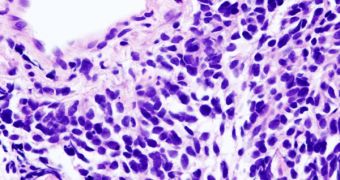According to the conclusions of a new scientific investigation, it would appear that powerful DNA sequencing tools can be used to find the genetic mutations that lead to cancer in individual patients, to map the evolution of their conditions over time, and to determine whether therapies are effective or not.
The discovery was made by a team of scientists at the University of Washington in St. Louis (WUSL). Experts here believe that the DNA sequencing approach constitutes the basis of personalized medicine.
One of the main drives among medical researchers today is to develop tools that would enable them to tailor treatments to each patient's specific needs. This would ensure the maximum drug efficiency, while minimizing negative side-effects.
However, applying personalized medicine in real life requires a lot of knowledge, in the sense that experts need to be familiarized with each patient's genetic code before they can create custom courses of treatment. This is where the new tools come in.
The technique the WUSL team uses was developed by experts at university's Genome Institute, and is called deep digital sequencing. With this tool, a team led by Elaine Mardis, PhD, was able to sequence the genomes of more than 700 cancer patients thus far.
The expert holds an appointment as the co-director of The Genome Institute, at the WUSL School of Medicine (WUSM). “We’re finding clinically relevant information in the tumor samples we’re sequencing for discovery-oriented research studies,” she says.
“Genome analysis can play a role at multiple time points during a patient’s treatment, to identify ‘driver’ mutations in the tumor genome and to determine whether cells carrying those mutations have been eliminated by treatment,” Mardis goes on to explain.
The expert, who also holds an appointment with the WUSM Siteman Cancer Center and the Barnes-Jewish Hospital, presented the findings on April 1, at the opening plenary session of the American Association for Cancer Research's annual meeting, held in Chicago, Illinois.
She explained that, in the near future, oncologists would prescribe therapies to cancer patients based on data extracted from their DNA, through rapid, precise sequencing methods.
“As we move forward, we think sequencing will contribute crucial information to determining the best treatment options for patients,” Mardis concluded.

 14 DAY TRIAL //
14 DAY TRIAL //